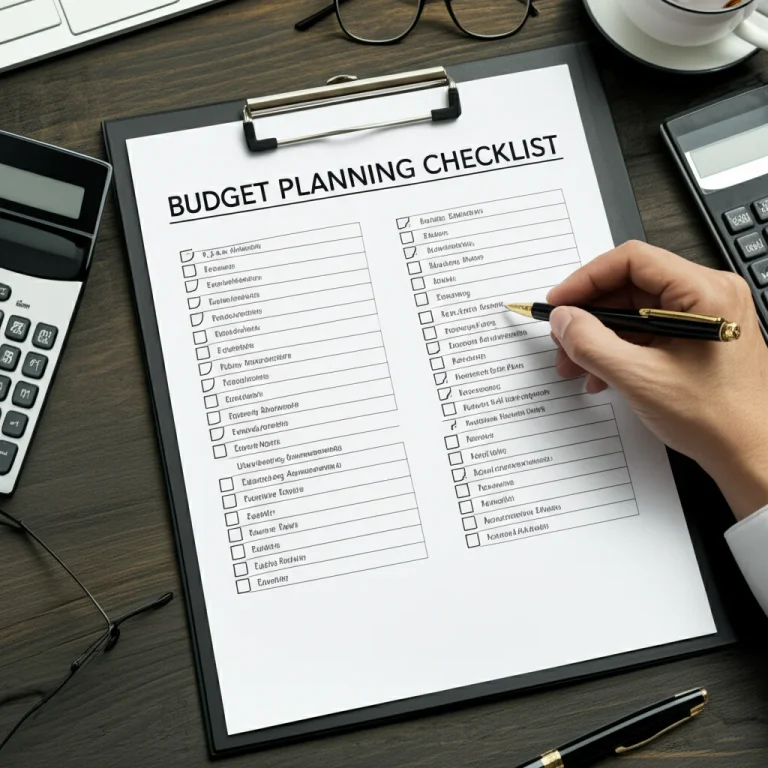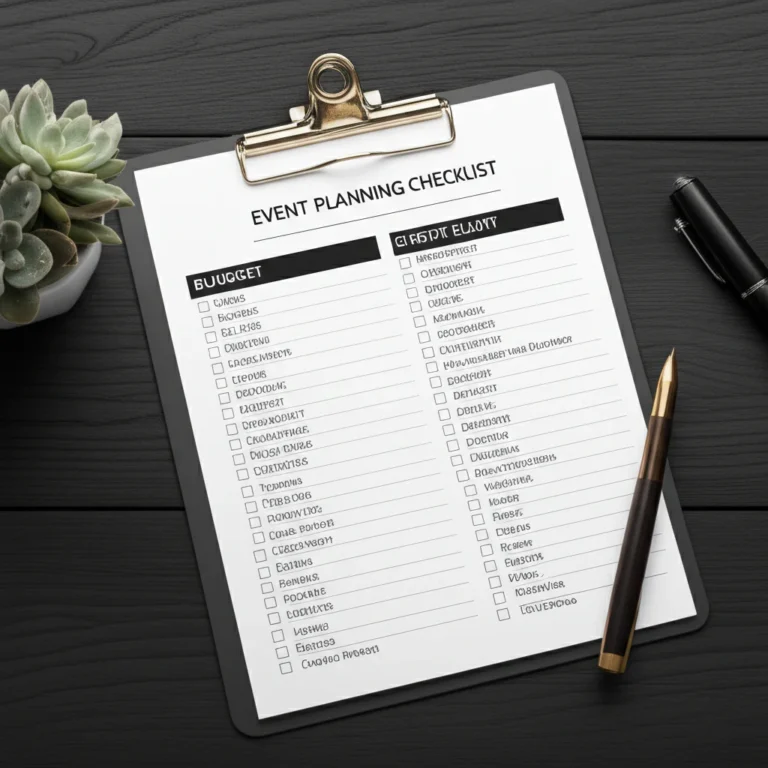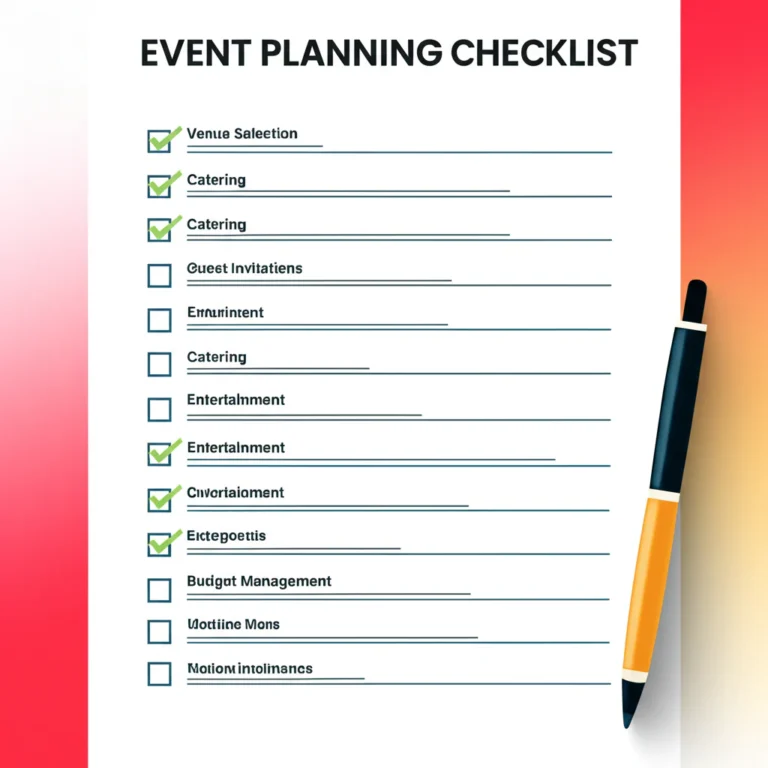Support our educational content for free when you purchase through links on our site. Learn more
How to Start an Event Planning Business with No Experience [2024]

Have you ever attended a well-organized event and thought to yourself, “I could do this”? If you have a passion for planning and a knack for organization, starting an event planning business might be the perfect career path for you. But what if you have no experience in the field? Don’t worry, we’ve got you covered. In this comprehensive guide, we’ll show you how to start an event planning business from scratch, even if you have no prior experience. So grab your party hat and let’s get started!
Table of Contents
- Quick Answer
- Quick Tips and Facts
- Background
- How to Get Started in Event Planning
- Choosing Your Niche
- Building Your Portfolio
- Networking and Making Connections
- Gaining Experience Through Volunteering
- Taking Courses and Certifications
- Utilizing Event Management Software
- FAQ
- Conclusion
- Recommended Links
- Reference Links
Quick Answer
Starting an event planning business with no experience may seem daunting, but with the right approach and a passion for planning, it’s absolutely possible. Here are the key steps to get started:
- Research the industry and understand the basics of event planning.
- Choose a niche that aligns with your interests and expertise.
- Build a portfolio showcasing any relevant experience or projects.
- Network with industry professionals and attend events to make connections.
- Gain experience through volunteering or interning at event planning companies.
- Consider taking courses or certifications in event planning to enhance your skills.
- Utilize online resources and event management software to streamline your business.
Now, let’s dive into the details and explore each step in depth.
Quick Tips and Facts
Before we get into the nitty-gritty, here are some quick tips and interesting facts to keep in mind as you embark on your event planning journey:
- Event planning is a multi-billion dollar industry, with a wide range of opportunities for aspiring entrepreneurs.
- Good organizational skills, attention to detail, and the ability to multitask are essential qualities for a successful event planner.
- Building a strong network of industry professionals and vendors is crucial for your business’s growth and success.
- Volunteering at events or interning at event planning companies can provide valuable hands-on experience and help you build your portfolio.
- Taking courses or certifications in event planning can enhance your skills and give you a competitive edge in the industry.
- Utilizing event management software can streamline your business operations and help you stay organized.
Now that you have a taste of what’s to come, let’s delve into the background of event planning and how you can get started.
Background

Event planning is a dynamic and exciting industry that involves organizing and executing various types of events, such as weddings, corporate conferences, fundraisers, and social gatherings. As an event planner, your role is to bring your clients’ visions to life and ensure that every detail of the event is meticulously planned and executed.
While experience in event planning can certainly be beneficial, it’s not a prerequisite for starting your own business. With the right mindset, determination, and a strategic approach, you can build a successful event planning business from scratch, even if you have no prior experience.
Now that we’ve set the stage, let’s dive into the step-by-step process of starting an event planning business with no experience.
How to Get Started in Event Planning
Step 1: Research the Industry
Before diving headfirst into the world of event planning, it’s essential to familiarize yourself with the industry. Research different types of events, their requirements, and the latest trends. Understanding the basics of event planning will give you a solid foundation to build upon.
Step 2: Choose Your Niche
Event planning is a broad field, and specializing in a specific niche can help you stand out from the competition. Consider your interests, expertise, and target market when choosing your niche. Whether it’s weddings, corporate events, or social gatherings, find a niche that aligns with your passion and skills.
Step 3: Build Your Portfolio
While you may not have professional event planning experience, you can still showcase your skills and creativity through a portfolio. Start by planning events for friends and family, and document your work with high-quality photographs and testimonials. A strong portfolio will demonstrate your capabilities to potential clients.
Step 4: Networking and Making Connections
Networking is a crucial aspect of the event planning industry. Attend industry events, join professional associations, and connect with other event planners, vendors, and potential clients. Building a strong network will not only help you gain valuable insights but also open doors to new opportunities.
Step 5: Gaining Experience Through Volunteering
Volunteering at events or interning at event planning companies can provide invaluable hands-on experience. While you may not be paid for your work initially, the experience and connections you gain will be priceless. Look for local organizations or event planning companies that offer volunteer or internship opportunities.
Step 6: Taking Courses and Certifications
While formal education is not a requirement for starting an event planning business, taking courses or certifications can enhance your skills and knowledge. Look for reputable institutions or online platforms that offer event planning courses. Certifications from recognized organizations can also boost your credibility in the industry.
Step 7: Utilizing Event Management Software
Event management software can be a game-changer for your business. These tools streamline various aspects of event planning, such as budgeting, guest management, and vendor coordination. Research and invest in event management software that aligns with your business needs and budget.
Congratulations! You’ve now learned the key steps to start an event planning business with no experience. But before we wrap up, let’s address some frequently asked questions.
FAQ

How do I become a beginner event planner?
To become a beginner event planner, follow these steps:
- Research the industry and understand the basics of event planning.
- Choose a niche that aligns with your interests and expertise.
- Build a portfolio showcasing any relevant experience or projects.
- Network with industry professionals and attend events to make connections.
- Gain experience through volunteering or interning at event planning companies.
- Consider taking courses or certifications in event planning to enhance your skills.
- Utilize event management software to streamline your business operations.
Read more about “What Does a Party Planner Consist of? …”
How do you break into event planning?
Breaking into event planning requires a strategic approach. Here are some steps to get started:
- Research the industry and understand the different types of events.
- Choose a niche that aligns with your interests and expertise.
- Build a portfolio by planning events for friends and family.
- Network with industry professionals and attend events to make connections.
- Gain experience through volunteering or interning at event planning companies.
- Consider taking courses or certifications in event planning to enhance your skills.
- Utilize event management software to streamline your business operations.
Read more about “10 Steps to Plan an Event …”
How do I pay myself as an event planner?
As an event planner, you can pay yourself through various methods, such as:
- Charging a percentage-based fee on the total event budget.
- Setting a flat fee for your services.
- Charging an hourly rate for your time and expertise.
- Offering different packages with varying price points.
- Negotiating commissions or referral fees with vendors.
It’s important to determine your pricing structure based on your expenses, market rates, and the value you provide to your clients.
Read more about “Create a Free Party Website: The Ultimate Guide …”
Is it hard to be an event planner?
Being an event planner can be challenging, but with the right skills, mindset, and determination, it can also be incredibly rewarding. The key to success is staying organized, paying attention to detail, and continuously learning and adapting to industry trends. Building a strong network and gaining hands-on experience will also contribute to your success as an event planner.
Now that we’ve covered the frequently asked questions, let’s wrap up with a brief conclusion.
Read more about “How to Start a Party Planning Business with Little or No Money …”
Conclusion

Starting an event planning business with no experience may seem like a daunting task, but with the right approach and a passion for planning, it’s absolutely possible. By following the steps outlined in this guide, you can lay the foundation for a successful event planning career. Remember to research the industry, choose your niche, build your portfolio, network with industry professionals, gain experience through volunteering, consider taking courses or certifications, and utilize event management software. With dedication and perseverance, you can turn your love for planning into a thriving business.
We hope this guide has provided you with valuable insights and inspiration to kickstart your event planning journey. If you’re ready to take the next step, check out our recommended links below for further reading and resources. Happy planning!
Recommended Links
- Corporate Event Planning
- Event Management Software
- Birthday Party Checklist
- Budget Party Planning
- 10 Steps to Plan an Event 2024



